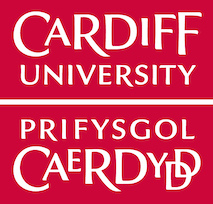Dear all
We have a PhD project available within the ERC Starting Grant Project 'MICA' (Mechanics of slow earthquake phenomena: an Integrated perspective from the Composition, geometry, And rheology of plate boundary faults), to work on field and microstructural constraints on the frictional-viscous transition in cold subduction margins. A studentship covering living costs at NERC rates and fees at Home rates (UK/EU students) is provided by the Cardiff University College of Physical Sciences and Engineering. The PhD study is scheduled to commence in October, 2019, and we will review applications from January 7th 2019.
The candidate must be willing and able to undertake periods of international fieldwork, both in a research group and independently. We are looking for a creative scientist with strong theoretical background, who can work within a dynamic research group, and who will participate in defining the project as it evolves. Field experience is essential, laboratory experience beneficial.
The project is supervised by Ake Fagereng (Cardiff), Francesca Meneghini (Pisa), and Kohtaro Ujiie (Tsukuba)
Feel free to contact Francesca Meneghin and/or Ake Fagereng for further information and with any questions.
Best regards
Francesca and Ake
Project Description
Because rocks are more commonly preserved from warmer subduction zones, we know little of how deformation is accommodated at the colder end of blueschist conditions. This project aims to study blueschist facies rocks in locations where subduction-related deformation can be deciphered from deformation related to exhumation. Such locations include Ishigaki Island in the Ryukyu Arc of Japan and Alpine Corsica in the Mediterranean. They both include blueschist and/or amphibolite metamorphic units comprising schists and metamorphosed ophiolitic units, thus spanning the entire, deep frictional-viscous transition along the plate interface. Moreover, both complexes benefit from existing, detailed background geologic knowledge.
Questions to be addressed include, but are not limited to: (1) What are the dominant deformation structures, as a function of depth, in cold subduction zones? (2) What are the mechanisms that form these key structures? (3) What are the stress magnitudes and orientations at the frictional-viscous transition in cold subduction zones? (4) How do mineral reactions, mineral precipitation, and the evolution of porosity control "deep" fluid flow and its interplay with deformation? There is flexibility to alter and add to these questions as the project evolves.
Data to be collected will include field observations, focused on maps and structural data collected both with traditional and modern photogrammetry methods, and laboratory observations such as EBSD and chemical mapping on the Scanning Electron Microscope. From the field observations, information will be gained on the geometry of structures, from which stress and strain interpretations can be made. From the laboratory observations, active deformation mechanisms and their distribution between minerals can be inferred.
The project forms part of a larger ERC starting grant project focused on the mechanisms of slow earthquakes, which occur at the edges of the subduction thrust interface in numerous locations world-wide. Within this project, there are opportunities to become involved with laboratory experiments and numerical models, depending on direction of the PhD project and interests of the student. In other words, while this is a field and laboratory geology project, there are potential opportunities for hypothesis testing using numerical or laboratory experiments. The successful candidate will have the opportunity to be part of an international team with field experience in different countries.
SEE ALSO: https://www.findaphd.com/search/ProjectDetails.aspx?PJID=103141
TO APPLY: Applicants should submit an application for postgraduate study via the Cardiff University Online Application Service (https://sims.cf.ac.uk/urd/sits.urd/run/siw_ipp_lgn.login?process=siw_ipp_app&code1=RFPDESCA&code2=0009). In the research proposal section of your application, please specify the project title and supervisor (Ake Fagereng). In the funding section, please select 'I will be applying for a scholarship/grant' and specify that you are applying for advertised project funded by the ERC and the CU College of Physical Sciences and Engineering.
MORE DETAIL ON THE PHD PROGRAMME IN THE CARDIFF UNIVERSITY SCHOOL OF EARTH & OCEAN SCIENCES:
https://www.cardiff.ac.uk/study/postgraduate/research/programmes/programme/earth-sciences

